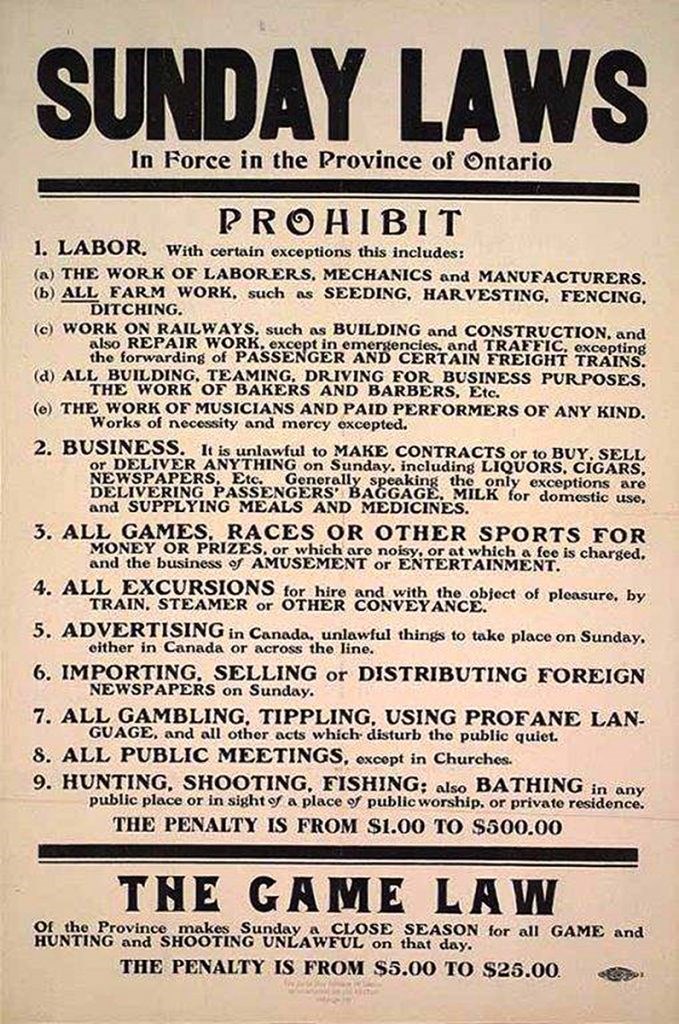Phil Egan
“On the venerable Day of the Sun,” the Roman Emperor Constantine declared in 321 AD, “let the magistrates and people rest and let all workshops be closed.”
Laws against Sunday shopping and other regular activities are older than many think.
From 1845 in the Province of Canada and from 1906 in Ontario, the Lord’s Day Act sharply restricted almost all Sunday activities.
The Protestant ideal was a quiet Sunday spent reading religious books or periodicals. “Even the irreligious went to church on Sunday; the religious went more than once,” states the book, The Church in the Canadian Era. Potatoes for Sunday dinner were peeled Saturday night. Laundry wasn’t hung out to dry.
The numerous prohibitions contained in Ontario’s 1906 Lord’s Day Act included “all games, races or other sports for money or prizes.”
The Feb. 26, 1907 Sarnia Observer proclaimed: “New Law Will Affect Sarnia. No more Sunday newspapers will be allowed to be sold on The Lord’s Day.”
A public outcry followed when an attempt was made to outlaw milk deliveries on Sunday. That was taking it too far, people complained. Growing families needed their milk.
By the 1960s, Ontarians had begun bristling against the more Draconian elements of the Act. Amendments were enacted to allow cultural and recreational activities, farming and trade shows, and scientific exhibitions and horse racing.
Yet Mayor Iven Walker and Alderman Harry Turnbull remained opposed to Sunday movies, according to one newspaper article. It was 1975 before Sunday movies were permitted in Sarnia, and by then the debate was fully underway.
The focus shifted to Sunday shopping. Some residents were outraged when stores began “flaunting” the Lord’s Day Act by daring to open, including the A&P store at London and Murphy Roads, the IGA store in Point Edward and Butcher Boy in Sarnia.
The grocers said they were losing business to the wide-open Sunday shopping across the St. Clair River in Port Huron, Michigan. The only way to keep shoppers home was to defy the Retail Business Holidays Act and open on Sundays, they argued.
When the Charter of Rights and Freedoms was enacted in 1982 it was only a matter of time before the Lord’s Day Act was challenged. That came in April of 1985 when the Supreme Court of Canada heard a case involving the Big M Drug Mart, which argued it contravened the religious and conscience provisions of the Charter.
The high court agreed and finally struck down the Lord’s Day Act as unconstitutional.

